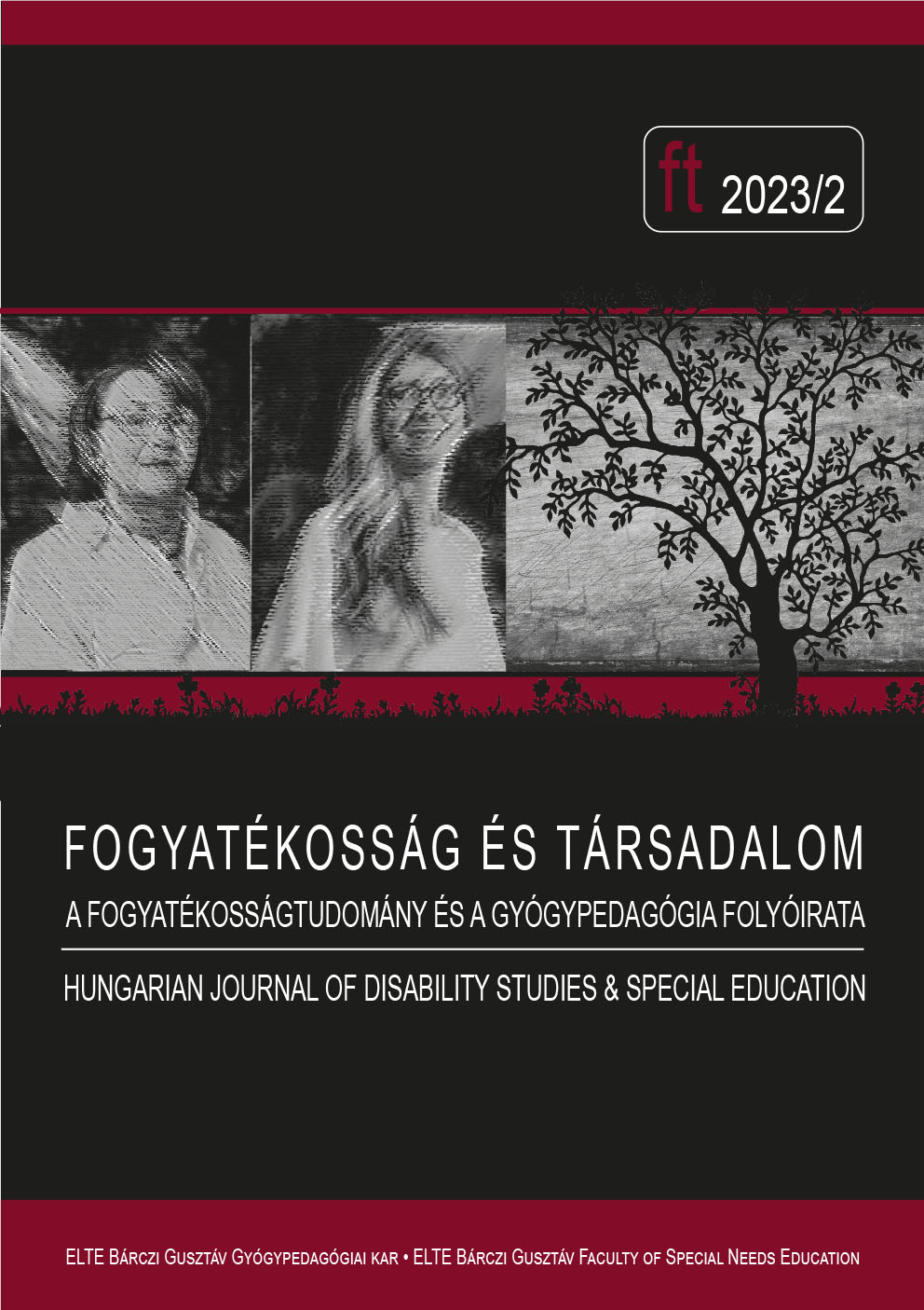Kunt Zsuzsanna : Instead of an editorial preface – Linking cultural anthropology to the phenomenon and experience of disability
The paper provides an overview of some of the basic connections between cultural anthropology and disability. It aims to critically reflect on the need to consciously zoom in, examine and rethink our perceived thought structures and patterns of action. With this introduction, Disability and Society wishes to honour the scientific legacy of a researcher and... Read more
DOI: 10.31287/FT.hu.2023.2.1
DOI: 10.31287/FT.hu.2023.2.1

